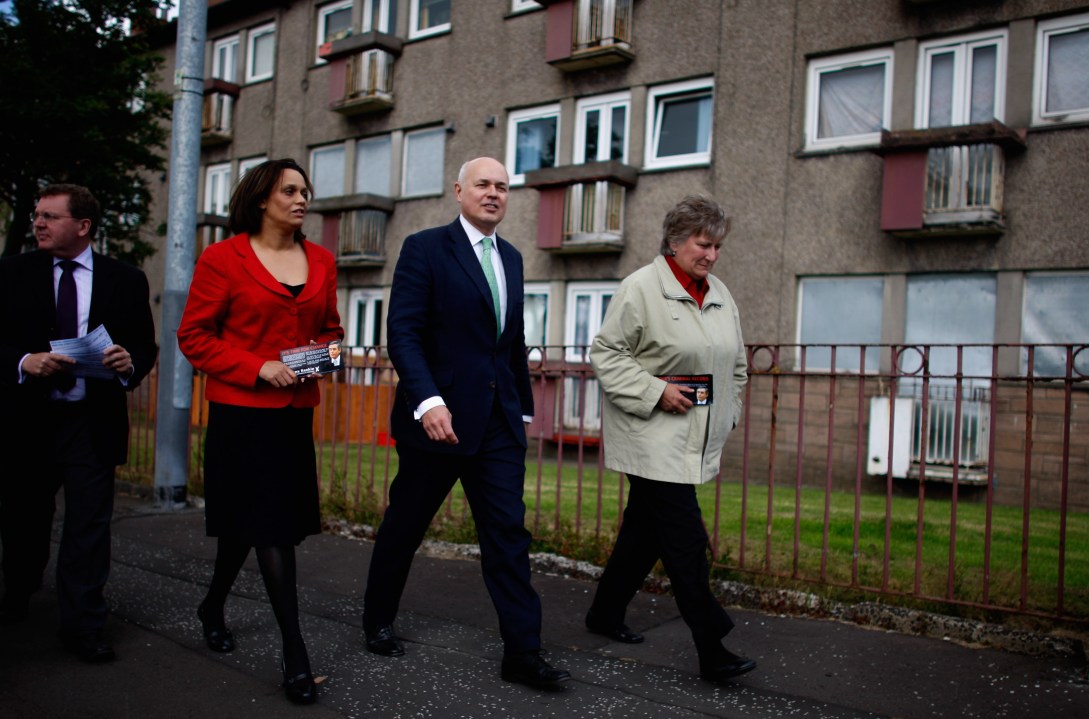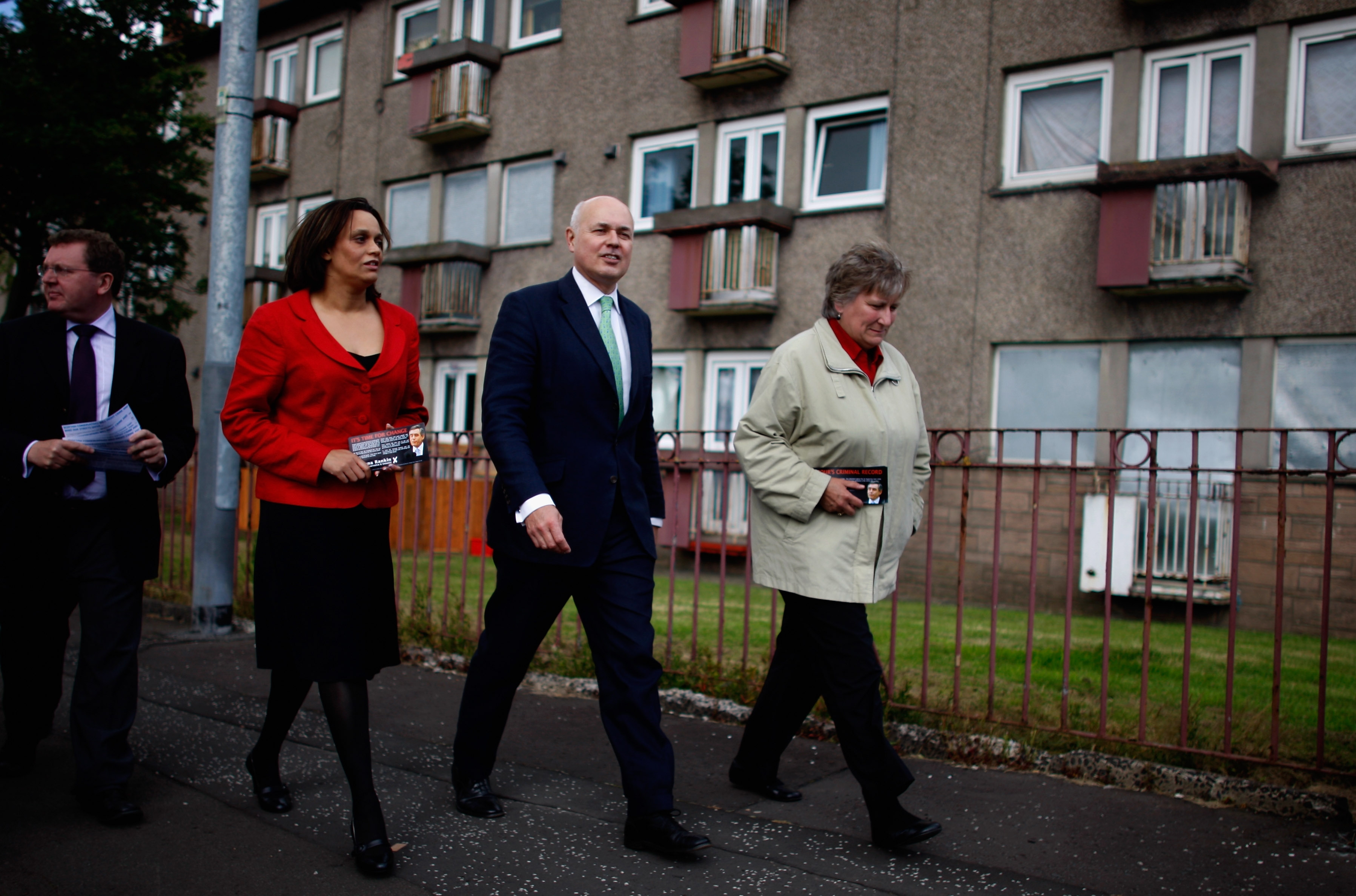I always enjoy Peter Oborne’s columns not least because his opinions are as entertaining, predictably unpredictable, quixotic and changeable as his cricket captaincy. This is not a bad thing. This week he’s back in full-on Cameron as Disraeli mode, arguing that the coalition’s reforms of education (in England, though sadly the Peter and the Telegraph refer to “Britain’s schools”) and welfare (across the UK) are so important that success here dwarfs any failure anywhere else.
I think he may be right.
Coincidentally, I’ve an article in today’s Scotsman that, though chiefly concerned with Iain Duncan Smith and welfare reform, makes passing reference to Gove too. These two, perhaps more than any other leading ministers in the government, appear minded to think not only that Something Must Be Done but that Something Can Be Done. Being hated is not always the worst thing in politics. Nor, of course, is thinking long and hard before acting.
Anyway, if I were advising Labour I suspect I’d say that being The Party of More Welfare is not necessarily the optimal place from which to campaign. As John Rentoul is wont to say, Ed Miliband is much too fond of “idiot-leftism”. Anyway, here’s my piece:
The image of IDS as a callous “toff” hellbent on whipping the poor into submission is in any case a laughable caricature. Few British politicians – and no Conservative ministers – have thought longer or more deeply about welfare reform. His answers may prove mistaken but he cannot sensibly be accused of failing to address the question.
Despite the hysterical reaction to this week’s benefit changes, no-one actually proposes eliminating the safety net. The Treasury might wish to sharply reduce spending on social protection but, including pensions, the government will still spend more than £220 billion on welfare payments of one kind or another this year. The overall welfare bill is not falling. Indeed, IDS has long argued that some payments might, at least in the short term, need to rise to help move claimants from welfare into work.
Moreover, despite what the BBC, Guardian and other bastions of conventional, left-wing opinion might have you believe, the government’s welfare proposals are its most popular policies. Politically speaking, this is a simple question: who wants to increase welfare spending and who wants to reform a system everyone knows is no longer “fit for purpose”? We know where the Conservatives stand; it seems that Labour is likely to fight the next election as the party of increased welfare payments. The Tories are not unpleased by this.
Despite what you may have been led to believe, the public hates spending money on welfare. According to a YouGov poll released in January, 77 per cent of voters favour stripping child benefit payments from families containing one earner making more than £60,000. More significantly, 76 per cent support removing benefits from claimants who refuse to accept offers of employment. And while 28 per cent suspect the government is being “too harsh towards people on benefits”, some 47 per cent fear the government is “not being tough enough” on benefits.
Similarly, limiting the annual increase in benefit payments to 1 per cent in each of the next three years is approved of by 45 per cent of respondents, while 51 per cent also think it is “unfair” for benefits to rise “when many people in work are seeing their wages rise by less than inflation”.
Three in four voters also support IDS’s benefits cap. Most voters are, I think, appalled to discover that it is at present possible to claim £26,000 or more a year in benefit payments. Granted, only a small number of families find themselves receiving such extraordinary largesse, but the fact that some people do receive such remarkable disbursements from the public purse appals most Britons. Defenders of the status quo have trapped themselves in the position of defending the indefensible.
Nor is this a matter of mean-spirited English people hammering the poor, while generous “community-minded” Scots take a different line. Though the Scottish sample size in YouGov’s UK polls is small and should therefore be treated with some caution, it seems evident that, broadly speaking, there is no great difference between opinions north and south of the Border.
Indeed, Scots may take an even tougher line on welfare than voters elsewhere in the UK: 82 per cent support a benefits cap while 81 per cent agree benefits should be removed from those who decline a chance to work. An overseas observer contemplating this data might be tempted to conclude that Scotland and England could almost be part of the same country.
Visit any working-class pub in Scotland and you will hear opinions that make IDS seem like Polly Toynbee. Perhaps, as Ms Toynbee is wont to suggest, the public has been gulled by right-wing newspapers or hoodwinked by a false dichotomy between “shirkers” and “strivers”. Be that as it may, a majority of Labour voters also think the welfare bill is too high and would like to see something done about it.
Whole thing here.








Comments